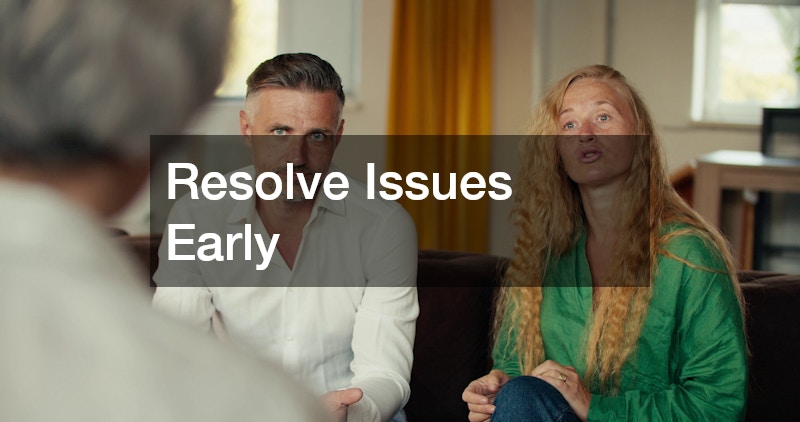Marriage marks a beautiful beginning, but it also brings with it a variety of responsibilities. For newlyweds, one of the most critical—yet often overlooked—steps in building a secure future together is setting up a comprehensive estate planning package for managing personal and shared assets. The concept of planning for the unexpected may not be as exciting as choosing honeymoon destinations or decorating your first home, but it is one of the most important investments you can make for long-term peace of mind.
When couples start their life together, they’re often focused on immediate financial goals like buying a home, saving for travel, or building a nest egg. However, developing a plan that addresses what happens in the case of illness, death, or major life transitions is just as essential. Proper planning not only protects your belongings and finances, but it also ensures your partner is cared for following your wishes. From decisions about property and health care to future children and charitable giving, early action helps avoid confusion and legal hurdles down the road.
Many people believe that these matters are reserved for the elderly or the wealthy, but that couldn’t be further from the truth. Whether you rent a small apartment or own multiple properties, starting the process now ensures that your assets are protected, your voice is heard in times of crisis, and your loved one isn’t left to untangle a legal mess in your absence. It also encourages honest conversations between partners, laying the groundwork for healthy communication and long-term planning throughout your marriage.
The ten tips we’ll explore in this guide are tailored to the unique needs of newly married couples looking to secure their financial and legal future. From choosing the right professionals to understanding how to integrate property ownership and future care needs into your decisions, each tip provides practical and relevant guidance. You’ll gain insight into not just what to do, but why it matters, and how each choice contributes to building a future that reflects your shared values and goals. Let’s dive into the top ten considerations that will help you choose the right strategy for securing your new life together.
1. Legal Help for Couples

Starting your journey as newlyweds means navigating many new legal and financial responsibilities together. One of the most important steps is securing professional legal guidance tailored to your joint circumstances. A trusted legal expert who specializes in planning for couples can help you design a comprehensive plan that protects your interests and lays a foundation for your shared future. Engaging with knowledgeable advisors early ensures that your wishes are documented properly and can save your family time, stress, and money later.
Specifically, when choosing an attorney, you want someone with experience in managing the unique dynamics of newly married couples. They understand how to address ownership of combined assets, draft documents that reflect your joint wishes, and help navigate local laws that affect property, health care, and financial decisions. An experienced legal guide will walk you through the options available, tailoring each element to suit your new life together and protect your combined interests.
Digging deeper, the right legal professional will not only draft essential documents but will educate you about the consequences of various choices, helping you avoid common pitfalls. They will also coordinate with other specialists, such as financial advisors and tax experts, to ensure your package covers all aspects of your financial life. By working with a trusted guide, you can confidently make informed decisions, knowing that your new partnership is well protected.
2. Finding the Right Fit
Selecting the ideal legal partner for your estate planning package is more than just finding someone with the right credentials—it’s about finding the best fit for your values, goals, and communication style. Newlyweds benefit from a lawyer who listens carefully and works collaboratively to customize solutions rather than applying generic templates. The right professional should make you feel comfortable discussing sensitive matters and help you understand every part of the process.
In particular, seeking out the best practitioner means researching their experience with young couples and their ability to handle complex situations involving joint assets, future children, and life changes. Many legal professionals offer consultations that allow you to gauge how well they understand your needs and how clearly they explain your options. This initial interaction is critical in building trust and ensuring that the plan you choose aligns with your priorities.
To elaborate, the best estate planning lawyer will also stay current with changes in laws and local regulations, which can impact how your package is structured. They are proactive in advising you on updates and will be a long-term partner, assisting you with modifications as your life evolves. Choosing the best fit is a foundational step that sets the tone for effective planning and peace of mind for years to come.
3. Safeguard Shared Assets
For newlyweds, protecting shared belongings, investments, and financial accounts is a top priority. Working with a dedicated estate attorney can help you craft a plan that clearly outlines how your joint assets will be managed and distributed, both during your life and after. An attorney can ensure that your estate plan reflects your wishes and provides for your spouse in ways that avoid confusion or disputes.
More specifically, your estate attorney will address how assets like savings, retirement accounts, and valuables are titled, and can recommend strategies to optimize tax benefits and avoid probate delays. This professional will draft legal documents, such as wills or trusts, that formalize your intentions and safeguard your property. If you own a house or land, these details are essential to include in your package to ensure your shared home remains protected.
In further detail, the estate attorney will also guide you on how to update beneficiary designations and manage potential creditor claims. By securing these safeguards in your estate planning package, you reduce risks that might affect your spouse’s financial security. This careful preparation fosters confidence in your new marriage and protects the legacy you build together.
4. Choose Nearby Experts

Having access to legal counsel nearby provides several advantages for newlyweds setting up their estate plan. A local attorney is familiar with state and municipal laws that can impact property ownership, taxation, and healthcare decisions. Choosing someone close to home allows you to meet face-to-face regularly, which can be crucial when discussing complex or emotional topics.
More precisely, local experts understand regional nuances that could influence how your package is structured. For example, real estate laws, community property regulations, and local court systems vary significantly by location. A nearby legal professional can advise on these specifics and help you comply with any local requirements, ensuring your planning is both valid and effective.
To elaborate further, working with a local attorney can provide peace of mind knowing that they are accessible in case of urgent questions or changes in your situation. Proximity fosters stronger relationships and often results in more personalized service. Your package will reflect not just your needs but also the laws and customs of your home community, making it a reliable and practical solution.
5. Planning Property Wisely
When it comes to estate planning, property is often one of the most valuable assets couples own together. Whether you’ve purchased your first home or inherited land, it’s important to include real estate thoughtfully in your planning package. Estate planning lawyers specialize in structuring these arrangements to help you protect your investment and simplify transfer processes.
Specifically, legal professionals will analyze ownership types—such as joint tenancy, tenancy in common, or community property—and recommend the best option for your situation. They can also assist with deeds, mortgages, and related paperwork to ensure your property is handled according to your wishes. Including real estate clearly in your package reduces the risks of legal disputes or unintended consequences.
Delving deeper, lawyers will also advise on how to manage property tax implications and potential impacts on government benefits or estate taxes. Your estate plan will often include contingencies for selling or transferring property if certain events occur, such as incapacity or death. Thoughtful planning of your property assets today lays the groundwork for a smoother, more secure tomorrow.
6. Resolve Issues Early

Planning for the future can sometimes bring up difficult discussions, especially when dealing with family or complex assets. Utilizing mediation and arbitration services as part of your estate planning package can help newlyweds resolve potential conflicts before they escalate into costly legal battles. These services provide a structured environment to negotiate and reach agreements amicably.
In particular, professional mediators facilitate conversations around sensitive topics like inheritance, financial responsibilities, and care decisions. This can be especially useful for couples blending families or dealing with extended relatives. Arbitration services offer a more formal resolution process when mediation alone isn’t enough, saving time and expenses compared to court proceedings.
Expanding on this, including dispute resolution clauses in your estate plan signals your commitment to handling disagreements constructively. It also provides clear guidance for your spouse and family on how conflicts should be addressed, reducing uncertainty and stress during challenging times. Early resolution tools are a smart addition to protect your marriage and your legacy.
7. Homeowners, Take Note
For many newlyweds, purchasing a home or acquiring land is a milestone that also carries important legal implications. Including your house and land in your estate planning package ensures that these significant assets are protected and transferred according to your wishes. Planning carefully for real property can prevent complications later and give you both peace of mind.
More specifically, your planning should address how ownership is titled and what happens to the property if one spouse passes away or if you decide to sell. This involves creating clear instructions within your legal documents about your house and land, which might include trusts or specific provisions that reflect your shared goals.
Further, comprehensive planning takes into account tax benefits, mortgage responsibilities, and maintenance costs tied to your property. Including the house and land in your estate plan also allows for future adjustments, such as adding children or accommodating changes in financial circumstances. Thoughtful property planning is a cornerstone of a secure future for newly married couples.
8. Thinking Long-Term Care

Though retirement may seem far off, considering long-term care options early is a wise part of estate planning. Planning for potential future needs, such as assisted living or senior living communities, can help you make informed decisions about finances and healthcare in the future.
Specifically, your legal professional can help draft documents that address who will make decisions if either spouse becomes unable to manage their care. Planning may also include provisions for funding senior living communities or ensuring eligibility for certain benefits, reducing stress on your partner.
Elaborating further, early consideration of long-term care aligns your estate planning package with your values and goals. It provides flexibility to adapt as life circumstances change and helps avoid last-minute crises. Proactive planning empowers you and your spouse to face the future with confidence and security.
9. Ask the Right Questions
When starting your journey, knowing what questions to ask estate planning attorneys can make all the difference in choosing the right package. A skilled advisor will encourage you to explore topics you may not have considered, helping to tailor the plan to your needs. This dialogue ensures your package is comprehensive and effective.
It’s important to ask about the documents needed, how property is handled, tax implications, and procedures for updating the plan as your life evolves. Understanding how your attorney approaches communication, fees, and ongoing support is also critical in making the right choice.
Going deeper, asking the right questions builds trust and clarity, making the process less overwhelming. Your attorney will guide you through the answers and explain complex concepts in plain language, helping you feel empowered. This collaborative approach strengthens your estate planning package and your partnership.
10. Tying It All Together
Estate planning packages work best when all elements—from financial accounts to real estate—are coordinated into one cohesive plan. For newlyweds, integrating these pieces ensures that your shared goals are honored and that your assets are managed effectively.
In particular, incorporating real estate into your overall package means considering how it interacts with other assets and legal documents. Coordination prevents conflicts or gaps and makes it easier for your spouse to administer your estate if needed. A comprehensive plan also anticipates future changes like buying more property or relocating.
Finally, tying everything together requires regular review and updates. Life events such as the birth of children, career changes, or health shifts mean your plan should evolve with you. By keeping your estate plan up to date, you create a secure foundation for your marriage and legacy.
Choosing the right estate plan as newlyweds is a vital step in securing your financial and legal future together. By seeking knowledgeable guidance, selecting professionals who fit your needs, and thoughtfully addressing shared assets like property, you can craft a comprehensive plan that protects your interests and your spouse. Early discussion and planning foster clarity, reduce conflicts, and ensure your wishes are honored even in difficult times.
An estate planning package tailored to newlyweds reflects not just legal necessities but your shared values and goals. It empowers you to face the future confidently, knowing that you have taken important steps to protect each other and your legacy. Starting this process early is one of the best gifts you can give to your marriage. It’s a foundation of trust, security, and foresight that supports you both for decades to come.

